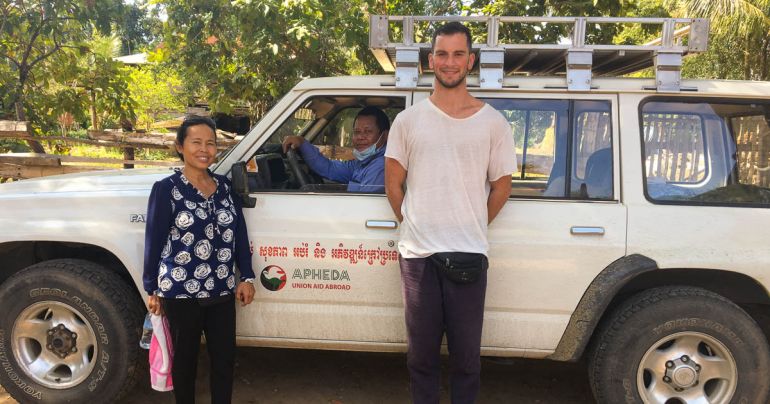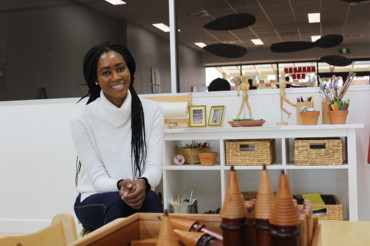Fashion Teacher Transforms Cambodian Project
Published: 27 Mar 2017

Fashion Teacher Jamie Gould in Cambodia
A CIT teacher's research will transform a vocational training project for Cambodian women by tapping the lucrative local market for traditional Khmer garments.
When Jamie Gould joined CIT Technology and Design as a fashion lecturer last year he picked up responsibility for guiding CIT's unique partnership with international development organisation Union Aid Abroad - APHEDA. That's seen him travel to Cambodia twice in the past six months, most recently at APHEDA's invitation to assess its vocational training project ‘Promoting Sustainable Livelihoods'.
"APHEDA works with five garment training centres throughout Cambodia. Each has a trainer and we train them in basic sewing and fashion design skills," Jamie explained. The trainers are brought together in Kampot for two-week's intensive training. They then disperse to pass on their new skills to women in Cambodia's remote areas.
Village women are offered nine months training in making basic garments. After they graduate, the program supports them to set up co-operatives to sell the clothes they make.
In October 2016 Australian Government Endeavour Mobility Grants supported eight CIT students to travel to Cambodia with Jamie to help train the project trainers in Kampot.
"APHEDA is running these programs so these women stay in the village, stay with their children, are able to work on the farm and not go to the city, Phonm Penh, to work in sweatshops. Because that's the alternative," Jamie said. "I do feel it opens Australian student’s eyes to the flip side of the industry."
Jamie's research for APHEDA means that when he returns to Cambodia later this year with another 8 CIT students, they'll not only teach basic sewing skills, but learn traditional Khmer dressmaking skills.
"All of the women want to know how to sew traditional Khmer style garments. But they’re taught how to make shirts, skirts, pants - western style clothing," he said.
"If they know how to do traditional Khmer style they can get into the wedding industry. It's huge in Cambodia. Women are prepared to spend huge amounts on a traditional wedding dress, which means the rural women's dressmaking co-operatives are missing the market.
"This hadn't been picked up before. So I’ve re-written the APHEDA curriculum and added it," he said.
"When we go back in October I’m organising for a traditional Khmer dressmaker to come in to run a five-day workshop, so we’re going to be learning too."
The study trip to Cambodia last year was "really beneficial for the students," Jamie said. "They were really touched by the whole experience. It was quite rewarding for them to be passing on their skills. A lot of them realised how much they knew, which was very motivating for them. And I think they were very inspired, and inspired to do more."
Two of the CIT students that participated last year are considering returning with the group this year to offer their knowledge, and learn new Khmer dressmaking skills.

 Change language
Change language 简体中文
简体中文 ภาษาไทย
ภาษาไทย الدول العربية
الدول العربية Việt Ngữ
Việt Ngữ Español
Español Bahasa Indonesia
Bahasa Indonesia



